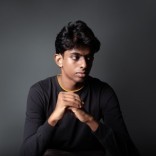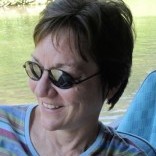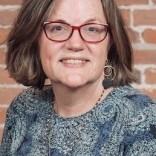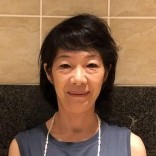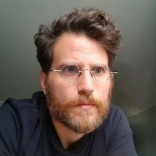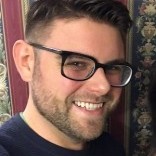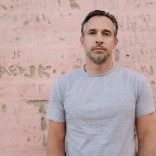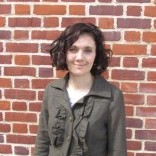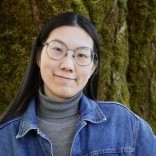The Elgin Marbles
Linden Hibbert
The woman on the telephone told her that the casting would be at six-thirty. Raffy checks her watch for the last time: five-eleven. Before she leaves, she puts the dishwasher through a quick rinse cycle. She has already decided to walk the extra stop to the tube to calm her nerves. Leaving the steamy potwash, nestled behind the staff loo and kitchen of the Italian restaurant where she earns minimum wage, she waves at the waitstaff she passes, and they wish her luck.
She hasn’t had an audition in over a year, hasn’t got a part in considerably longer (she doesn’t count the odd job through her father). Crossing Leicester Square from its seedier side and heading towards Charing Cross tube, she decides if there’s even a hint of good news, she’ll call her dad ahead of seeing him as usual on Sunday.
When she was a girl, she loved Sunday lunches. She can still conjure her mother’s face over the chicken pan, the slightly beaded upper lip, the scent of thyme from her stuffing, the knots in her mother’s apron that she tied up behind her, and the tightness of the cord under her own fingernails when she was allowed to untie it. There was comfort too in her father’s routine, in the crack of the newspaper as he turned the page, the marks made on the tablecloth by his black-tipped fingers, the fuggy scent of his aftershave mingled with sweat, and the steady rhythm of his breathing. But when he was particularly taken by an image he’d freeze, his ribs would still, and the room would fall silent. Her mother would freeze too. While Raffy tried not to count the seconds her father held his breath. She half expected one day he might die of it and face-plant in the paper, but he never did. He’d resume his breathing as though nothing had happened, while turning over the page, or her mother would call them to the table.
Since her mother died, Raffy’s cooked Sunday lunch every week for her dad, though she missed the week of the funeral, for obvious reasons. The first week, her uncle brought the chicken home from the butchers for her, and she managed to tie up her mother’s apron and get the oven on and was peeling carrots at the sink when her father came into the kitchen and briefly mistook her for her mother. It was an awkward business. Thankfully, they never talked about it, but some weeks later he arranged for some headshots of her, proper ones. She didn’t particularly want them, but she went along to make him happy.
Despite it being rush hour, even the crush of the tube can’t dim her enthusiasm for the audition. Her nerves return as she changes trains at Waterloo for London Bridge. But the feeling passes, and by the time she’s exiting the tube, she’s equal to the evening’s brightness. Checking her watch for the time, it appears to have stopped at twenty to six. Setting off, she thinks there’ll be plenty of time once she gets there to warm up her voice.
Following her phone’s directions, she takes a side street. This area is full of old warehouses, tall enough to keep the streets below permanently in shadow, which lends an eerie feel in high summer, when it’s bright daylight everywhere else. The road is quiet. No one walking. She shivers and lengthens her stride. Not a single kebab house or chippie. It’s almost like she’s left London behind her with the summer weather. The air tastes different too, sieved of diesel and grease fumes. Soon enough she puts her fears behind her and enjoys the power of her stride. She’s tall for an actress, too tall, and often enough she’s forced to stoop around actors, particularly famous ones, who all seem to reach below her shoulder.
But she was right to walk. The exercise makes her aware of her body in a good way. Most of the time she forgets she has a body. One of the main reasons she hasn’t given up on the whole acting thing is that when she’s on stage, she becomes almost vaporous, able to pour herself into other things. As a model, and she was so young then, she felt brittle, broken into pieces: her face and hands, her body, her smile. By twenty-two the work began to dry up, and at twenty-six, in debt and with the bailiffs hounding her, she let her father set up a meeting with a producer he knew at his studio. The studio turned out to be a windowless box beyond Norwood, a single winking lens her audience. The guy asked how she felt about nudity. In general? she replied. No, he said. Right now.
She crosses another dark road. The potholes are vast. There is litter in the gutter that’s been there so long the paper has turned black. She passes a boarded-up pub called the Quiet Woman. The faded pub sign shows an image of a woman holding her severed head. All the way down the rest of the road she has that skin-pricked feeling of being watched. It makes her speed up her cadence until she’s sweating. She crosses another road and has to wait on the white lines for a bus to pass. The new road on the other side feels familiar and welcoming. So much of the London of her childhood is captured by this one street, full of two-storey Victorian semis carved up into flats, their front gardens filled with wheelie bins, each with the flat number painted in white. She relaxes. She must be nearly there.
Dusk is coming. The streetlamps have been switched off for austerity. After the halo of city light she is used to, the greyness feels cool against her skin. She is walking along a large concrete building, she realises, which turns out to be the theatre itself. She looks up but she’s too close to see much beyond the ground floor. It looms over the local houses like a power station. What is this place? She had high hopes from the scale of its roof on Street View that it was a proper theatre, but now she’s here, it looks like it’s been many things, mostly industrial. She busies herself with trying to find the entrance, so not to feel her disappointment, or worry about what is going to happen now she’s here. The third flank of the building has a smaller entrance built on. A large black door, freshly painted, which gives her hope, and a column of brass signs screwed into the brick. She looks down the list of names and sees the one she’s looking for: The Elgin Marbles.
That’s it. That’s the name the woman on the phone call mentioned. At the time, it had struck her as an odd name for a troupe, and on googling it she discovered what looked to her like piles of rubble or salvage in some museum; a smattering of stone limbs which, it said, had been ripped off some building and shipped back to London to be saved. That word stuck with her. The incongruence of that kind of violence saving anything. It sounds eminently unlikely and yet, knowing the world, equally likely to be true.
There’s no bell by the door, and no knocker. Right now, she’d relish kicking a can or cracking a knocker, anything to make some noise, but instead, she turns the handle, which opens to reveal a beautifully tiled Victorian hallway of the kind she’s glimpsed in a certain type of house on a certain type of road that no one she knows lives on. There is a smell of theatre, though, and she draws a long satisfying breath before heading in. Beneath the single dusty light there is only a staircase, steep, leading upwards and to the right. She’s out of breath by the third set of stairs. Again, there is comfort in telling herself that this must be some theatre; the height of it. She pictures a room at the top where they rehearse.
The landing at the top of the fourth flight leads to a door with a sign for the company, larger this time, screwed into the door at head height. She steps inside. The room is empty. Cavernous. Long, rectangular, with windows down one side only and, she smiles at this, a great curtained area at the end that must be a stage. To the right are pillars, and beneath them a section of darker space that seems to have been gouged out of a former hallway, making the stage slightly off-centre.
Hello? She calls, poking her head inside the door and looking round.
When no one appears, she tries again, this time sucking in her belly and using her diaphragm to project her voice farther. Hello?
By now she has inadvertently walked into the room. Having expected a riot of people auditioning, or backstage in some way, it’s the stillness rather than the absence of people that confounds her. She turns slowly, to be thorough, ensuring she hasn’t missed a sign saying back soon. What she does see, well, in truth, what she notices, since it starts in her peripheral vision, is a coming-into-focus of figures, statues, set out in a diagonal grid pattern across the space. They appear to be advancing out of the pillared area, except they are stationary. It feels uncanny, how they appear to be here, physically present, real, when they were not here moments before. As she turns her head slowly, she sees more of them, and what she had already noticed comes more fully into focus, like those 3-D puzzles that were once all the rage.
The nearest statue is life-sized and reminds her of public statues, the ones found in parks on plinths. Ghosts from lost ages. Statues of famous and influential men. But these are women. All women.
She steps towards the nearest statue, drawn by the expression on the woman’s face as she looks back over her shoulder, as Raffy has done countless times on lonely, dark roads. The face captures a moment between knowing and not knowing, when the body is starting to sense it is not alone but doesn’t yet have proof. This turning back, the slight pause as the eyes adjust to long sight, this is the moment caught here.
Beyond this first statue is a mother and child. But it’s a far cry from the biblical depictions she remembers from school trips to the National Gallery. This is no sainted woman with a halo, no bald baby looking eerily like an old man sucking at her breast. This is a child, holding a child. The mother, dressed in skinny jeans and a vest, holds the child as though she can’t believe where it has come from. Her face is so full of wonder, despite or perhaps because of her youth, that briefly, Raffy envies her. Yet her eyes are drawn to the thin arms holding the child, the bitten nails. She wants to throw a circle around them both, mother and child. To protect them as her own mother once protected her. Who did this to you? she wants to ask.
The woman nearest the child has her back to her. She is squatting, knees wide, leaning over, her hands working something from the soil. Like the young mother with her child, this woman, forming something carefully out of sight, looks afraid, hungry, too young. Raffy sees her ribs through the fabric of her clothing, which does little to cover her body other than for decency’s sake. Her bare knees poke out into the air. Her feet anchor her to the mud. Her whole being is directed towards whatever it is she is making, though Raffy has the sense that some part of her is aware that she needs to be careful not to get caught. Stepping a little to the left to see better, Raffy notices that the woman’s hands are moulding earth, or clay, into a small figure.
At a rough estimate, there are perhaps thirty figures spread across the room in all manner of poses, and most are caught in ordinary moments, stances that Raffy recognises, though several could be described as extraordinary. For example, one woman is turning into something, she can’t tell what, maybe a flower, and while all the technical cleverness is amazing, nothing compares with her face. Her total lack of choice. Raffy’s body understands and could probably mimic that expression, though she would struggle to explain it.
The effect of so many figures in one space is overwhelming, bringing tears to Raffy’s eyes. The figures can only be human. At any moment she expects them to move. Her own body wills them to turn towards her, to speak, to reach out. As the moments pass, the fact that they don’t starts to feel chilling. On impulse, she strokes the fine fabric falling across the body of the woman becoming the flower which looks finer than a gauzy snooper’s curtain, the sort people around her flat still peer through and call it privacy. The texture is not gauzy at all but startlingly solid, even grainy. She withdraws her hand immediately, unsure how she’s meant to respond. Dropping her gaze unconsciously, she notices goosebumps up the woman’s calf. She shivers and steps back.
Is this a prank?
She knows she’s going to have to touch the woman’s skin. It’s the only way to know. She forces herself to reach out and grasp the woman’s arm. There is the reassuring solidity of muscle beneath the skin. But she lets go. The arm is horribly cold.
Clamping her hand under her armpit, she feels suddenly shaky and unsure. Her heart has begun to thud. Her fear, however, is not of the statues, and not for her wellbeing. If she had to put her finger on it, she could only say something feels unnatural. But when she considers whether she feels safe here, the answer is far easier: she does. At which point she relaxes. She is not someone who has to know everything. No good has ever come of revealing. It is enough to be part of this surreal company of women. She feels called here. Yes, called here. And just acknowledging that sentiment is a relief to her. It feels somehow right. As she is thinking this, purely by chance, her gaze catches that of the squatting woman making the figure out of mud, in an exchange that can only be called human.
Relief softens her face and brings a smile. Thank God. Thank God! The miracle of theatre! She wonders if she can learn to achieve the same uncanny stillness, to replicate the physical coolness of this woman’s body that so disturbs her. Perhaps a menthol spray? Some other type of coolant. Make-up friends might know. She will need to work on the colour of her skin, which is ordinarily pale, to achieve the same magnificently chilling grey tinge with a hint of blue. To think that this is the work of cosmetics. What a performance though, to get under her skin as this company of misfits has—suddenly she gets the joke and can only laugh at her own blindness: the Elgin Marbles. Of course. The company is made up of broken bits, like the statuary rubble saved from demolition.
She didn’t know that people being statues was a thing, until on a shoot in Times Square, a figure that she thought was a statue suddenly tried to take her hand. It was like the moment when she thought her father’s heart might just stop, only now it was her heart. Of course, the person dressed up as Lady Liberty in the middle of Times Square was an actor! She’d laughed herself out of the shock, and then loved it, and watched the statues catching other tourists out until the whole shoot wrapped up.
Her hands itch to applaud, to show the company her appreciation of their subtle craft, but the stillness, the silence, is so profound she feels unable to shatter it. Instead, she starts to believe (dare she?) that she might join them, that she might be actress enough to pull it off. She starts with a small decision: what position she might consider taking, if she were to step into character herself, right now. She feels like one of the old concrete bollards down in the road outside, cracked open from frosts and driving scrapes, all her inner scaffolding on display.
In a series of shy steps, she positions herself. Yes, this will be her spot. There will be time later for make-up or props. Now she must pin down a single truth she wants to convey. Something drawn from her life. She feels again the strange nostalgia she experienced on the way here, a memory so faint it is recollected bodily rather than seen in her mind’s eye. It's from her very early childhood, back when she felt truly safe in the world. When she was just a daughter, her father just a father, before she had any knowledge of the world of men. She hesitates, doubts again: is this good enough? She lets herself sit as though on a curb; knees drawn up. This is how she would wait on the curb for her father to come home. Just beyond their own garden gate on the curve in the road where she could see him coming soonest. Sometimes the neighbour’s cat would join her, trying to rub against her. She sees ants hunting for food on the pavement, smells tarmac warmed by the evening sun. The slamming of doors in the distance. Kids on bikes. She is a child with a child’s body, soft tufty hairs on her shins, scabs on both knees, dirt between her toes, wearing hand-me-down sandals two sizes too big. Her hair is so tightly plaited, her scalp itches. She has just scratched it, in her mind, and is basking in that brief feeling of relief before it feels tight again. She waits, her eyes pinned on the end of the road where, soon, she is sure, she will see his familiar form, in outline at first, that gait of his, and his empty sandwich box under his arm. She has the hint of a smile on her lips. Yes, she thinks, this is how she wants to remember herself. Before breasts and hips and headshots, before images of her floating freely on the dark web. The obedient and loving daughter. Waiting, waiting, never to grow up.
The air is softer than candlelight. The longer she holds her knees tightly into her chest, the more disembodied she feels, as though she is floating when sitting still. Will they accept her? She desperately wants them to. While she is gathering her thoughts, she hears the distant sound of footsteps on the stairs. Another applicant? Panicked by the thought of competition when she is not yet ready to defend her place, assuming she needs to, assuming there is only one spot to fill, she falls fully into her role. A tiny but necessary relaxation at the base of her neck occurs, while outside, heavy boots near the top step; breathing laboured, resentful, a little wheezy. There is no knock, instead a figure falls into the room. Raffy cannot spoil her pose by turning to look but instead tells herself she must accept that she will not see, that such control is what this role requires. Except the woman is loud. Still out of breath, the actress, whoever she is, walks around, feet slapping on the hardwood floor. Circling, circling, bewildered. What the . . .? What the fuck? Is this a joke? Then the clatter of her receding feet. The third contender doesn’t even step into the room, doesn’t open the door, which has banged itself shut after the previous applicant. This woman seems to stop at the door, her breathing audible. Raffy doesn’t know how long the woman waits there, unable, or afraid to knock.
The last applicant is a man. By now Raffy can hear the difference in approach. The heavier tread, the smell of male sweat that precedes him, the presumptuous way he leans into the room by hanging off the doorframe with one arm. If either of the two women proceeding him glimpsed anything of the show, he clearly does not. Crossing the room, he circles through a half dozen statues as though they were not there. He announces his name clearly, several times, and then he kicks a column. His presence a scythe in the silence. Even in his wake, the room seems to hold its breath.
Raffy hugs her knees all the tighter and pictures her father’s figure on the very edge of her road. The male actor’s anger, still palpable in the room, feeds into that image of her father, so that it is sharper in memory. Inwardly something inside her has shifted, for she registers that he could not see the company, herself among it. What that could mean is too much to unpick now, but she believes that they might want her, and this role is hers to be lost. She can finally picture herself here, living the performance of her life.
The warmth of light glancing her cheek tells her that night has passed. Standing at ninety degrees to the window, she cannot see the rising sun except as a glow in her peripheral vision, but she can imagine it. In fact, in this moment she believes there is no limit to all she can imagine. She has grown chilly from a night of statueism. She is perhaps a little stiff but otherwise none the worse for her adventure, and how good it feels to have passed a single night as part of something greater than herself. She is aware of an impulse to reclaim her body by yawning or scratching her belly; most mornings she enjoys an animal-like stretch of her limbs before climbing out of bed. But to do so this morning would cost her the continuation of this performance.
The urge to remain part of the pack is stronger than the urge to reassert a sense of herself. As a concession, she allows herself the pleasure of contemplating what noise she would make if she were to announce herself as the young man had done in the night. A whoop perhaps, a holler or laugh? She decides on a celebratory howl starting at the very tunnel of her throat and ringing along the roof of her mouth. She can almost taste the sound of it, the reverberation in the cartilage, the animal thrill.
She lifts her tongue in her mouth, not to start the sound, but to imagine making it, but the muscles do not even twitch in response. She tries to suck in her cheeks, to move anything at all, but she can’t.
Before last night, she might have panicked, and felt a swallowed-up kind of claustrophobia. But she stays calm. She blinks, mentally, for not even her eyelids obey her.
The warming light of the rising sun spans her left side, turning her skin a kind of subtle apricot after the dun-grey of night. The studio air rings. Motes of light catch her eye like a sort of hearty applause. She thinks, briefly, of what she would say to her father, had she turned up for lunch, or even called. She imagines her voice telling him: I got the part, dad. His laughter down the telephone line and then his voice. That’s my girl. Wait ’til the lads hear. Do me a favour though, Raff, will you? Send us a picture.


